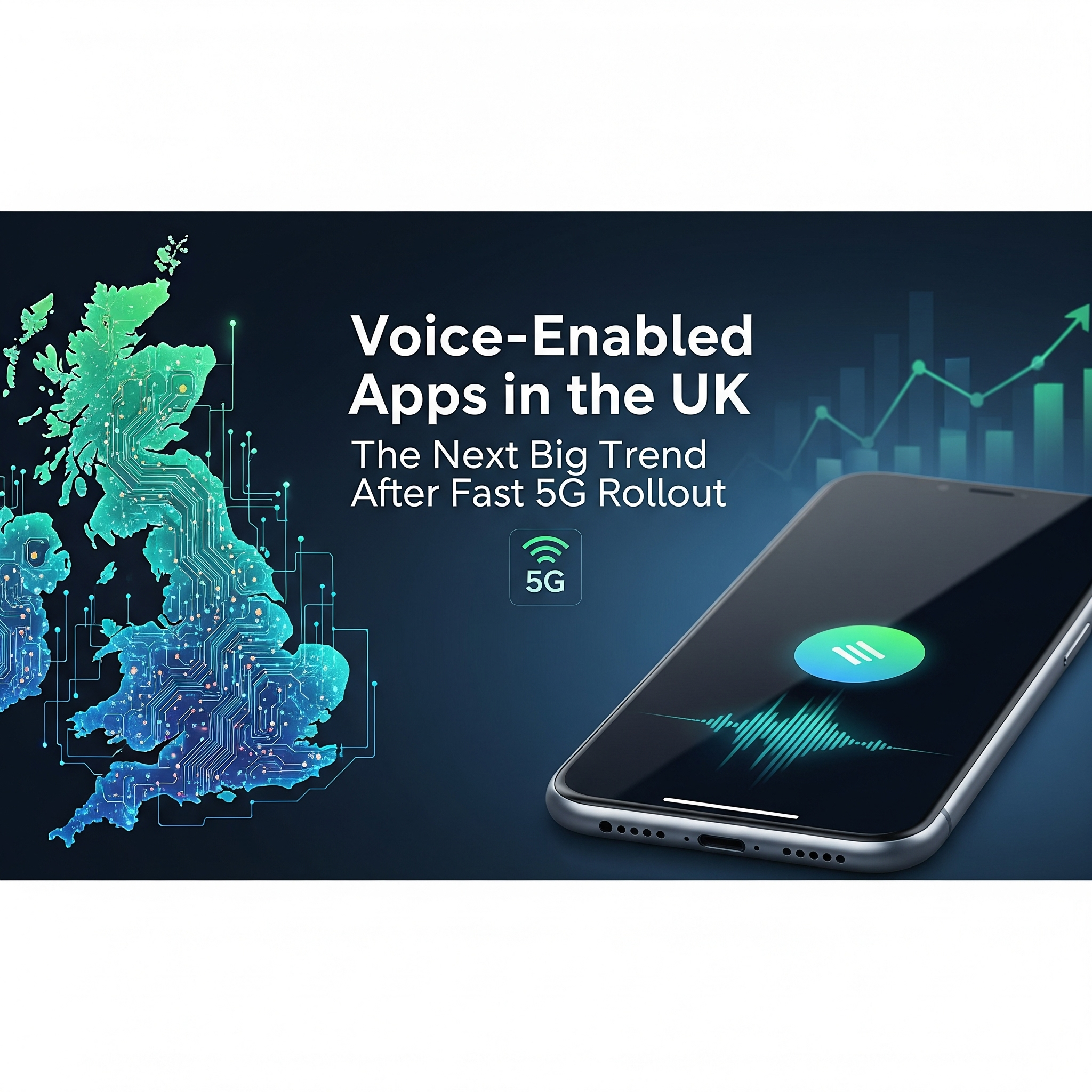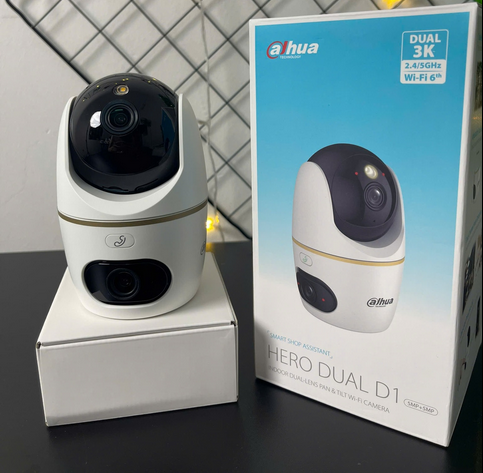Voice‑Enabled Apps in the UK: The Next Big Trend After Fast 5G Rollout

As the UK continues its rapid 5G rollout, a new era of technological innovation is taking shape—one dominated by voice-enabled apps. From voice-controlled banking to hands-free home automation, this shift isn’t just a gimmick—it’s the next big wave in mobile technology. Backed by the lightning-fast speeds and ultra-low latency of 5G, voice interfaces are becoming smoother, smarter, and more context-aware than ever before.
Why Voice is the Future of Mobile Interaction
The traditional tap-and-type interaction model is reaching its limit. As users demand more intuitive and seamless ways to interact with technology, voice commands are emerging as the answer. Voice-enabled apps reduce the need for manual navigation, allowing users to control services, search content, and perform tasks with simple verbal instructions.
This isn't science fiction—it’s a reality already unfolding. In the UK, smart speakers like Amazon Echo and Google Nest are now common household items, and with the integration of voice assistants into smartphones, cars, and even wearables, voice technology is embedded in daily life.
5G + Voice: A Game-Changing Combination
What makes voice-enabled apps even more powerful is their synergy with 5G. With speeds up to 100 times faster than 4G and latency as low as 1 millisecond, 5G networks can process voice inputs and fetch responses in real time. This eliminates lag, making conversations with AI assistants feel more natural and dynamic.
For example, a voice-enabled navigation app in a 5G-connected car can instantly update routes based on traffic conditions, offer nearby restaurant suggestions, or book a parking spot—all through a natural conversation.
This kind of functionality requires more than just smart AI. It demands a reliable, fast network—and the UK’s accelerating 5G infrastructure is making that possible.
Industries Being Transformed by Voice-Enabled Apps
1. Retail and E-Commerce
Retailers are adopting voice-enabled apps to enhance the shopping experience. Customers can now search for products, place orders, and track deliveries without ever touching their screens. This hands-free convenience is especially attractive in a post-COVID world where touchless interactions are preferred.
2. Healthcare
Voice apps in healthcare are transforming the way doctors and patients interact. From scheduling appointments to accessing health records, voice commands simplify tasks that were once manual. Voice-enabled apps also help elderly users who may struggle with touchscreen navigation.
3. Banking and Finance
Voice authentication and command-driven banking services are on the rise. Users can now check balances, make transactions, and get financial insights through simple verbal interactions. With 5G, these transactions become instant and secure.
4. Media and Entertainment
From playing music to controlling smart TVs, voice-enabled apps are revolutionizing the way people consume content. Voice search helps users find what they want faster, while 5G ensures buffering and loading times are virtually eliminated.
Challenges and Considerations
Despite their potential, voice-enabled apps aren’t without challenges. Accents, background noise, and privacy concerns still pose barriers to wider adoption. However, AI-driven Natural Language Processing (NLP) and Machine Learning (ML) are constantly improving recognition accuracy—even across diverse UK regional dialects.
Data security is another critical issue. Developers must ensure that user data collected through voice interactions is encrypted, anonymized, and GDPR-compliant.
The Role of Mobile App Developers in the UK
As this voice-first trend continues to grow, businesses across the UK are turning to professional mobile app development companies to bring their voice-enabled ideas to life. Whether it’s integrating Siri, Alexa, or Google Assistant, or building a custom AI solution, expert developers can tailor experiences for both Android and iOS platforms.
Choosing the right mobile app development company is crucial. It’s not just about coding a voice command; it’s about creating a smooth, secure, and user-friendly experience that can scale with 5G capabilities.
If you're a business considering investing in mobile app development, now is the ideal time to innovate with voice features. From chatbots to voice commerce, the tools and infrastructure are finally in place to support real-time, voice-driven engagement.
What’s Next for Voice Apps in the UK?
Looking ahead, voice-enabled apps are expected to integrate more deeply with IoT (Internet of Things). Think of homes where you control lights, heating, locks, and even coffee machines with your voice—or offices that respond to verbal commands to adjust lighting and presentation setups.
As 5G becomes the standard across the UK, we’ll see the rise of voice-first experiences in everything from travel booking to mental health support apps. It’s not just about convenience—it’s about accessibility, personalization, and creating faster, frictionless user journeys.
Final Thoughts
The UK’s fast 5G rollout has set the stage for the rise of voice-enabled apps, which are quickly becoming more than just a trend—they’re a transformational force. From retail to healthcare, voice is reshaping industries and redefining how users interact with technology.
For businesses ready to ride this wave, partnering with an experienced mobile app development company can turn voice potential into real-world results. The future is speaking—are you listening?





